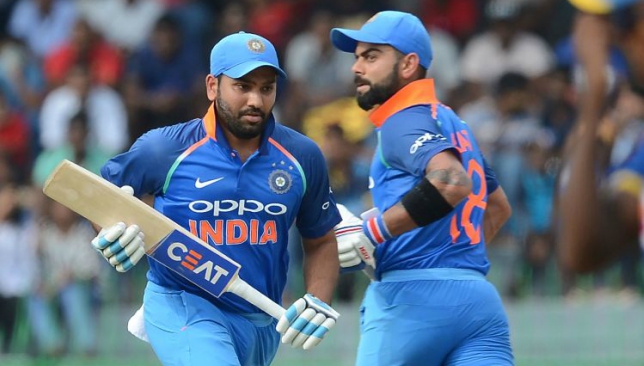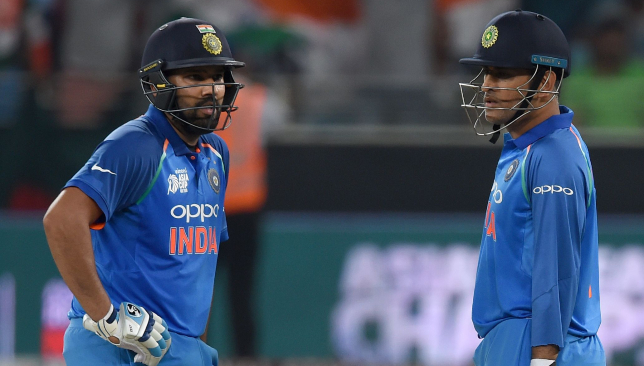
For the second time in 2018, India held their nerves off the final ball in a final to break Bangladesh’s hearts.
Earlier in the year, India needed five runs off the last delivery in the final of the Nidahas Trophy T20 tri-series final against the Tigers in Colombo. At that time, Dinesh Karthik hit Soumya Sarkar for a six to pull off one of the most remarkable wins in T20 cricket.
Then in the Asia Cup final in Dubai on Friday, the equation was one needed from the final ball of the tournament with an injured Kedar Jadhav on strike.
The batsman managed a leg bye off the bowling of Mahmudullah as India clinched their seventh Asia Cup title and pulled off their third major last-ball win over Bangladesh, following their 2016 World T20 group stage victory.
The tournament did not start on a good note for the Indians. Their preparation was far from ideal as only half the team trained in Dubai just days before their first game against Hong Kong while the entire squad, including some big players who were in England with the Test team, trained together just once.
That lack of preparation showed in the first match against Hong Kong as the Associate team reached 174 for no loss after 34 overs chasing 286 but eventually fell short. It was just the wake-up call India needed.
From their next match onwards, India were ruthless as they crushed Pakistan twice and Bangladesh once to make it to the final. A second-string team managed to tie an inconsequential match against Afghanistan before the men in blue had to fight tooth and nail to pull off a last-ball win over Bangladesh in the final.
Only the result matters and the scorebook says India remained unbeaten in the tournament. And along with India, stand-in captain Rohit Sharma maintained his excellent record in limited-overs finals.

Sharma said he is inspired by Dhoni’s leadership.
Rohit was the captain when India defeated Bangladesh in the Nidahas Trophy final. And he led the Indians to Asia Cup glory in UAE, again in the absence of Virat Kohli. Rohit has won eight T20s and seven ODIs as captain, losing just one each in both formats. What’s more, Rohit has three IPL titles under his belt as Mumbai Indians captain. Virat Kohli has no IPL title, nor a major limited overs tournament triumph this season.
Captains are judged by results and Rohit gets full marks for getting the job done. It is impossible to not compare his leadership to that of Kohli who is failing to deliver desired results despite having a seemingly world-beating side at his disposal.
There is a simplicity to Rohit’s leadership. He seems a lot more open and flexible, allowing players to play with freedom. With Kohli in the team, the rest of the players get overshadowed, something which all-rounder Kedar Jadhav alluded to earlier in the tournament where he said not having Kohli in the team was good for players as it allowed them to put themselves out there.
And the biggest plus that Rohit has is luck as captain. The legendary Richie Benaud famously said: “Captaincy is 90 per cent luck and 10 per cent skill. But don’t try it without that 10 per cent.”
Rohit Sharma as captain:
— Sampath Bandarupalli (@SampathStats) September 28, 2018
1st IPL ✔️
1st CLT20 ✔️
1st ODI series ✔️
1st T20I series ✔️
1st Tri-Series ✔️
1st Asia Cup ✔️#AsiaCup #INDvBAN
It holds true when you look at the leadership of Kohli and Rohit. Both give it their all, lead by example and urge players to constantly raise their game.
But when it comes to results, Kohli has the 2017 Champions Trophy final debacle, Test series defeat in South Africa, ODI series defeat in England and the Test series thrashing against the Englishmen on his resume. Rohit has a stupendous record in white-ball cricket as captain. Plus, he is almost as good a white-ball player as Kohli.
After the Asia Cup final, the opening batsman said he sees a bit of MS Dhoni in his leadership style. He revealed he too likes to take his time before making any decision on the field and also wants to make players feel as secure as they possibly can. It is probably why India managed to avoid defeat in the Asia Cup despite staring down the barrel against Hong Kong, Afghanistan and in the final.
The World Cup in England next year is on everyone’s radar and this is not to suggest there is something gravely wrong in Kohli’s captaincy. But Rohit’s captaincy and consistent results are too enticing to ignore. He has delivered twice in one year in a significant tournament in the absence of Kohli and the team has responded well to his accommodating and consistent leadership.
Rohit’s leadership in white-ball cricket will definitely be on the radar of the Indian management and while there is no threat to Kohli’s undisputed supremacy, the shadow of the opening batsman’s record will fall upon Kohli’s performances in upcoming tournaments as the build-up to the World Cup gathers pace.